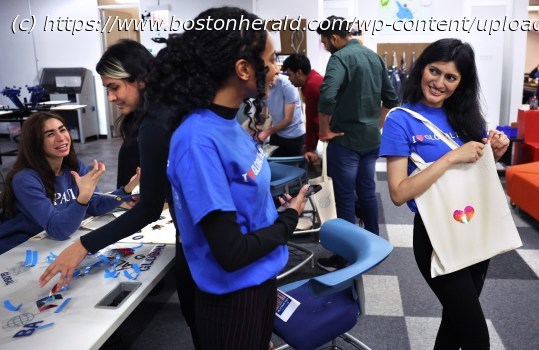International education is a roughly $200 billion global business
International students — long the golden goose for universities and colleges in advanced economies — face an increasingly uncertain future as governments seek easy targets to rein in surging immigration.
In the United Kingdom, one of the world’s biggest destinations for foreign students, the Labour Party while in opposition vowed to retain a ban on international students bringing dependents to Britain — the largest source of migration since 2019. In the Netherlands, a far-right coalition has proposed restricting foreign students’ access to Dutch universities.
In Canada, where one in 40 people is an international student, a government clampdown is forcing “puppy mill” colleges to shut down programs. And in Australia, where that ratio is even greater at one in 33, the government has proposed caps on foreign enrollments in universities and is targeting “dodgy providers.”
The impact is already being felt — aggregate visa data for the first quarter of 2024 showed volumes to the UK, Canada and Australia down between 20% and 30% from a year earlier, according to Sydney-listed student placement services and testing company IDP Education Ltd., which operates in all three markets.
“Students are the easiest group to control in terms of numbers, that’s why they’re No. 1 on the chopping list and universities aren’t particularly powerful constituencies so they’re probably also a reasonable political target,” said Andrew Norton, Professor in the Practice of Higher Education Policy at the Australian National University in Canberra.
Keir Starmer’s Labour Party last month ended 14 years of Conservative rule in the UK and hasn’t settled on its immigration policy since the July election landslide. Canada and Australia have elections due in the coming 14 months.
Governments are framing the moves as a way to improve the quality of education and stamp out rorting. But critics of the measures say they’re also politically motivated as a cost-of-living squeeze and housing shortages since the COVID pandemic sparks a backlash against rapid immigration rates.
International education is a roughly $200 billion global business, according to data company Holon IQ, with the UK, Canada and Australia three of its biggest players. The industry is considered a services export and generates economic benefits beyond tuition fees as students fork out for accommodation and living expenses and often go on to work and pay taxes in the countries they studied.
The United States is shaping up as winner from the crackdown in other markets. It surpassed Australia to become the preferred study destination for international students, according to an IDP survey of more than 11,500 prospective and current international students.
International student enrollments in the U.S. rose 11.5% in 2022-23 from the year prior, taking the total to more than 1 million for the first time since the pandemic. Vying to return to the presidency, Donald Trump has said he supports giving a green card to every noncitizen graduate of a U.S. college, though his campaign later said the program would include a strict vetting process.
But elsewhere, economic arguments about the benefits of a booming international education sector are taking a back seat to political ones as the electoral tide swings against immigration.UK closes a ‘gateway’
Measures by the former government to ensure the sector is used for education and “not as a gateway to immigration” are being reviewed by the new Labour government.
During the campaign, Labour shadow minister Chris Bryant assured that the party — if elected — wouldn’t reverse a ban on foreign students bringing dependents to the country. But more recently, UK Secretary of State for Education Bridget Phillipson asserted that “for too long international students have been treated as political footballs, not valued guests,” and that this will stop.






